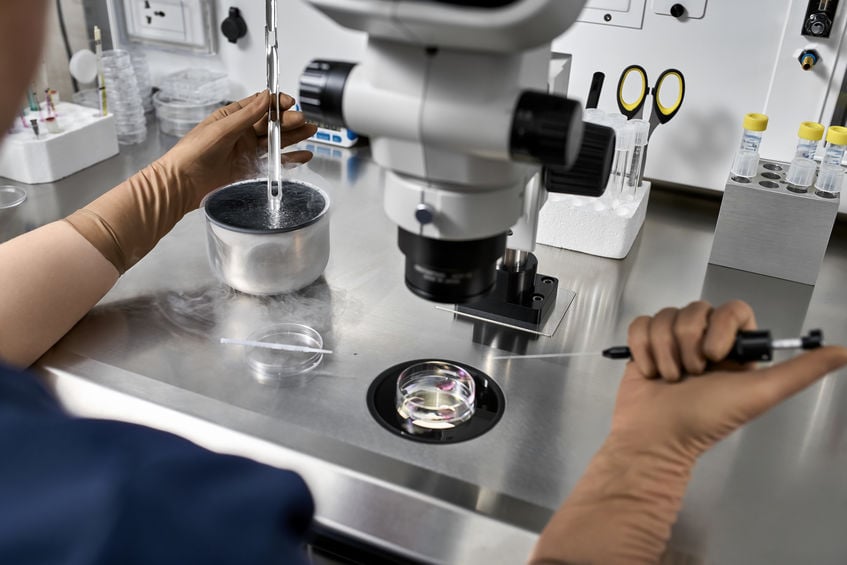Infertility Is A Man’s Problem Too
The numbers can no longer hide that men have infertility at the same rates as women. In all cases of infertile couples, up to 50% could be attributed to male factor infertility. These figures could be higher as some men think the problem is with the woman or take too long to seek treatment. Most cases of male infertility are treatable. Even severe cases can benefit from assisted reproductive technology (ART). However, donor sperm may be the only solution for a select set of men to start or grow a family.

What causes male factor infertility?
A fertile man should have 3 healthy markers to conceive: an adequate sperm count, sperm motility, and morphology. Infertility can happen if one or more of these factors are lower than expected. Several physical, chemical, and lifestyle reasons can cause problems with these markers. Physical causes include blockages or damage to the testicles, tumors, varicocele, and infections. In addition, some men will have physical defects from birth, while unbalanced hormones can limit sperm production. However, most cases are related to lifestyle choices. Smoking, alcohol use, obesity, and environmental toxins are common examples.
Is donor sperm the only solution?
Some men may believe there is no fix for infertility and the best option is donor sperm. Donor sperm are samples from a sperm bank or known donor to use in fertility treatment. For instance, the donor sperm is used for intrauterine insemination (IUI) or in vitro fertilization (IVF). When donor sperm is combined with these treatments, the success rate increases significantly. However, the child has no genetic link to the man. Medicine, science, and technology have given men the ability to have a family, even with severe infertility.
Possible treatment options
Assessing the root cause of infertility is necessary to receive the proper treatment. Making lifestyle changes, like a healthy diet, exercise, and weight loss, can improve fertility. Stopping smoking and alcohol use is also essential. If these fail, the doctor can provide hormone medication or perform surgery to correct blockages in the testicles. Over time, these solutions can improve sperm quality and quantity, allowing men to conceive naturally.
Turning to ART
For men with extremely low sperm count or a physiological issue, a reproductive clinic can help. The clinic can surgically retrieve sperm using different forms of testicular sperm extraction (TESE). First, a surgeon carefully removes tissue from the testicles. A reproductive clinic or laboratory can then separate healthy sperm. The sperm is then used to fertilize an egg sample using IVF. In some cases, the fertility team needs to use a single sperm for intracytoplasmic sperm injection (ICSI). With ICSI, the success rate of IVF with severely low sperm counts increases significantly. The reproductive clinic will discuss all these options with the patient.
When should men consider donor sperm?
Even with technology on the patient’s side, there are cases when donor sperm is best. Some men produce no sperm or have challenges from birth that prevent sperm production. Others have poor-quality sperm that will prevent pregnancy. If a known genetic condition shows up in a genetic screening, these abnormalities may appear in the child, and donor sperm may be best. Choosing donor sperm is an emotional, difficult step. However, this is often the last resort since several treatment options are available today.





